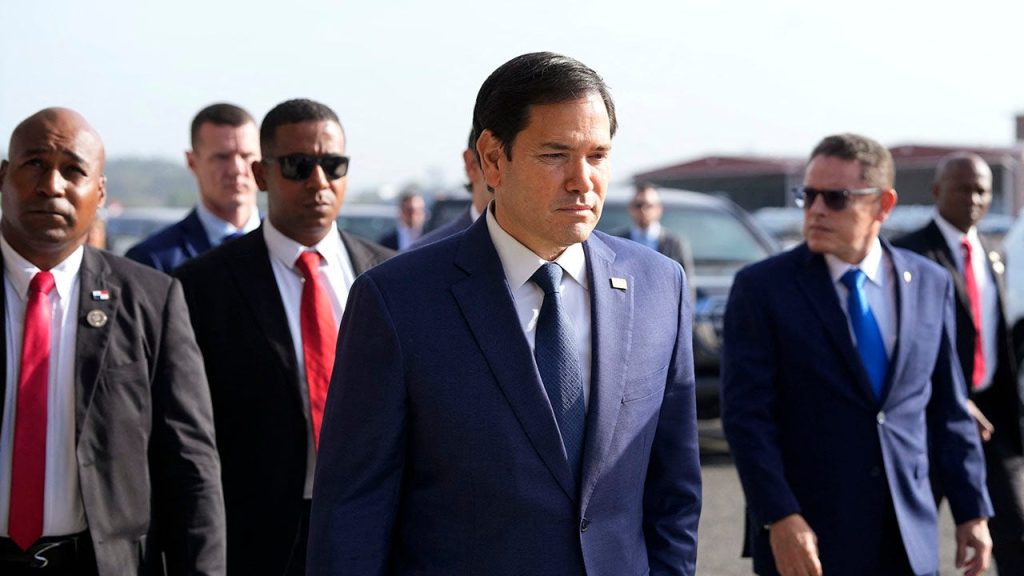The Trump administration, spearheaded by Senator Marco Rubio, has embarked on a diplomatic mission to Central America, securing agreements with Guatemala and El Salvador concerning the deportation of migrants. These agreements designate both nations as “safe third countries,” allowing the U.S. to deport individuals seeking asylum, even those not originally from Guatemala or El Salvador, to these countries while their asylum claims are processed, or for eventual repatriation to their countries of origin. This strategy aims to stem the flow of migrants attempting to enter the United States, addressing a key concern of the Trump administration. The financial burden of transporting these deportees back to their home countries will be shouldered by the United States.
Guatemalan President Bernardo Arevalo confirmed his country’s willingness to participate in this agreement, stating that Guatemala will accept a 40% increase in deportation flights, accommodating both Guatemalan nationals and those of other nationalities. This agreement aligns with the Trump administration’s broader immigration policy of tightening border security and streamlining the deportation process. While the specifics of how this increase will be managed remain to be seen, it represents a significant commitment from Guatemala and a potential avenue for the U.S. to expedite the removal of individuals deemed ineligible for asylum.
In a more expansive agreement, El Salvador’s President Nayib Bukele has presented a considerably broader proposition. He has committed to accepting deportees of any nationality, including American citizens and legal residents convicted of violent crimes, to be housed in El Salvador’s mega-prison, CECOT. Bukele framed this as an opportunity for the U.S. to “outsource” part of its prison system, suggesting a fee-based system that would be relatively inexpensive for the U.S. while providing substantial revenue for El Salvador. This unprecedented proposal highlights Bukele’s willingness to engage in unconventional solutions to address both domestic and international challenges.
While the proposal regarding incarcerated American citizens has garnered significant attention, its practical implementation faces legal hurdles, as the deportation of U.S. citizens is generally prohibited. Despite this, the offer underscores Bukele’s proactive stance and his desire to forge strong ties with the Trump administration. A U.S. official confirmed that there are no plans to deport American citizens, acknowledging the legal complexities while recognizing the significance of Bukele’s offer as a gesture of cooperation. The agreement primarily targets individuals deemed inadmissible to the U.S., potentially including members of criminal organizations.
The agreement with El Salvador provides a potential avenue for addressing the challenge posed by Venezuelan gang members convicted in the U.S., particularly if Venezuela refuses to repatriate them. This aligns with the Trump administration’s focus on combatting transnational criminal organizations and removing individuals deemed a threat to U.S. national security. Bukele has explicitly stated his willingness to accept detainees of any nationality, potentially providing a solution for individuals from countries with strained diplomatic relations with the U.S., making repatriation difficult.
Beyond accepting deportees of various nationalities, Bukele has also pledged to repatriate all Salvadoran MS-13 gang members present in the U.S. illegally. Furthermore, he has expressed his willingness to incarcerate criminal illegal aliens from any country, particularly those affiliated with Venezuela’s notorious Tren de Aragua gang. This comprehensive approach reflects Bukele’s determination to address both domestic crime concerns and contribute to regional security by collaborating with the U.S. These agreements represent a significant shift in regional migration policy and underscore the evolving relationship between the U.S. and its Central American counterparts in addressing the complex challenges of migration and transnational crime.

